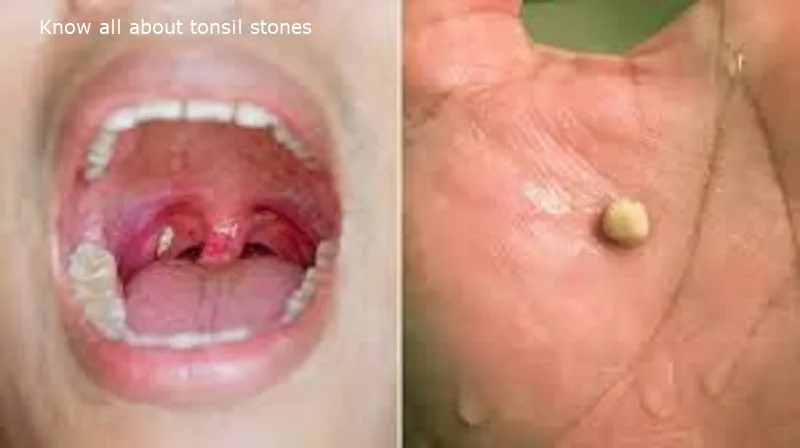
Tonsil stones, or tonsilloliths, are small, calcified deposits that form in the crevices of the tonsils. It is composed of hardened minerals, food particles, and bacteria. Tonsil stones can cause bad breath, sore throats, and difficulty swallowing.
Causes of tonsilloliths
Tonsil stones develop when debris becomes trapped in the tonsillar crypts, small pockets or folds in the tonsils. Several factors contribute to their formation.
1. Poor oral hygiene
Inadequate brushing and flossing can lead to the accumulation of food particles and bacteria in the mouth, increasing the likelihood of debris lodging in the tonsils.
2. Chronic tonsillitis
Frequent inflammation of the tonsils can enlarge the crypts, making it easier for debris to become trapped and calcify into stones.
3. Large tonsillar crypts
Some individuals naturally have larger or more numerous crypts, predisposing them to tonsil stone development.
4. Post-nasal drip
Excess mucus from the nasal passages can deposit in the tonsils, providing a medium for bacteria and debris accumulation.
5. Dietary factors
Consuming dairy products, which can thicken mucus, or a diet high in sugar and refined carbohydrates may promote bacterial growth, contributing to stone formation.
Prevention and care for tonsilloliths
1. Regular oral hygiene
Brush teeth at least twice daily and floss regularly to reduce oral bacteria and food particle buildup.
2. Tongue cleaning
Use a tongue scraper or brush the tongue’s surface to remove bacteria and debris that could contribute to stone formation.
3. Gargling
Rinse with saltwater or non-alcoholic mouthwash after meals to cleanse the throat and dislodge any trapped particles.
Also Read: Know healthy alternatives to rice
4. Stay hydrated
Adequate water intake helps maintain saliva flow, which naturally cleanses the mouth and throat.
5. Limit certain foods
Reduce consumption of dairy products and sugary foods that can promote mucus production and bacterial growth.
6. Regular dental check-ups
Routine visits to the dentist can help identify and address oral health issues that may contribute to tonsil stone formation.
Signs of tonsilloliths:
1. Bad breath (Halitosis)
Persistent foul odour despite good oral hygiene may indicate the presence of tonsil stones.
2. Sore throat
Discomfort or pain in the throat, especially when swallowing, can be a sign of tonsil stones.
3. Visible white debris
Small white or yellowish formations on the tonsils may be observable upon inspection.
4. Difficulty swallowing
A sensation of something being stuck in the throat can make swallowing challenging.
5. Ear pain
Referred pain to the ear due to shared nerve pathways, even without ear infection.
6. Chronic cough
Irritation caused by tonsil stones can trigger a persistent cough.

Post Your Comments